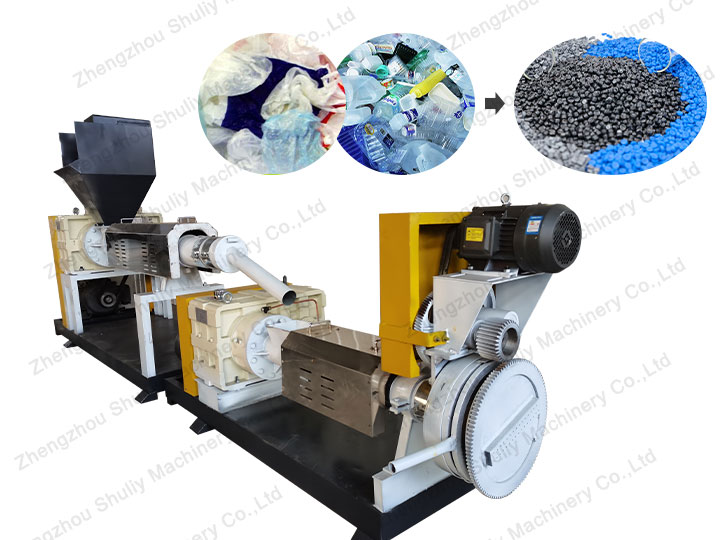Why 38CrMoAl Alloy Steel is the Gold Standard for Granulator Screws and Barrels?
When evaluating a plastic granulator, experienced buyers look beyond output numbers and motor power. They focus on granulator component quality, because they know the heart of the machine—and the part most susceptible to failure—is the screw and barrel. The selection of the extruder screw and barrel material is the single most important factor in determining the machine’s long-term durability and your operational uptime.
This is why the choice of steel is not a detail; it’s a foundational decision. This article explains why 38CrMoAl alloy steel, combined with a specific hardening process, is the industry’s gold standard for building a long-life plastic granulator.

The Challenge: The Harsh Environment Inside an Extruder
The environment inside a working granulator barrel is incredibly hostile. The granulator screw must endure:
- High Abrasion: From hard plastic flakes and potential contaminants like dirt or sand.
- High Temperatures: Consistently operating at hundreds of degrees Celsius.
- Corrosive Forces: From certain types of plastics or additives that can release corrosive gases when melted.
Using inferior steel in this environment is a recipe for rapid failure, leading to some of the most common extruder screw wear solutions: costly and time-consuming replacement.
The Solution: 38CrMoAl Alloy Steel Properties
This is where expert plastic extruder screw material selection comes in. 38CrMoAl is not a random code; it’s a specific chemical composition designed for extreme performance.
- Cr (Chromium): Provides excellent corrosion resistance and contributes to hardness.
- Mo (Molybdenum): Significantly increases the steel’s strength and toughness at high temperatures, preventing it from softening during operation.
- Al (Aluminum): This is the key element that makes the steel perfectly suited for the nitriding process.
This unique combination results in a base material that is inherently strong and resilient. But the real advantage comes from the subsequent treatment.
The Enhancement: The Nitriding Treatment for Steel
A base of 38CrMoAl alloy steel is only half the story. To create a truly wear resistant screw and barrel, the material undergoes a thermochemical process called nitriding.
During the nitriding treatment for steel, the machined screw and barrel are heated in a nitrogen-rich environment. Nitrogen atoms diffuse into the surface of the steel, forming an extremely hard, “case-hardened” layer. This makes our components a premium example of nitrided steel for extruders.
The result is a component with two ideal properties:
- A Super-Hard Surface: This outer layer has high hardness steel for recycling applications, making it incredibly resistant to abrasion and wear.
- A Tough Core: The underlying alloy steel retains its toughness, allowing it to absorb the immense torque and stress of the extrusion process without cracking.
The Business Impact: From Durability to Plastic Recycling ROI
Choosing 38CrMoAl granulator screws is a strategic business decision that directly impacts your bottom line.
- Reduced Maintenance Costs: A durable extruder screw lasts significantly longer, drastically cutting down on replacement costs and the labor involved in recycling machine maintenance.
- Consistent Product Quality: As a screw wears, its performance degrades, leading to inconsistent melt quality and poor pellets. A wear-resistant screw maintains its precise geometry for longer, ensuring stable production.
- Increased Uptime: The superior plastic recycling machine durability means fewer unscheduled stops for repairs, maximizing your production hours and overall profitability.

